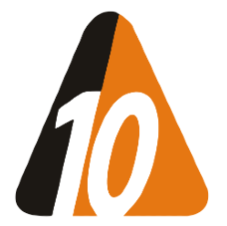
₹ 115200
₹91- ₹96
1200
₹87
-6

17 Jun 2025
19 Jun 2025
20 Jun 2025
Application Details
Aten Papers & Foam IPO is a bookbuilding of ₹31.68 crores. The issue is entirely a fresh issue of 33.00 lakh shares.
Aten Papers & Foam IPO bidding opened for subscription on June 13, 2025 and will close on June 17, 2025. The allotment for the Aten Papers & Foam IPO is expected to be finalized on Wednesday, June 18, 2025. Aten Papers & Foam IPO will be list on BSE SME with a tentative listing date fixed as Friday, June 20, 2025.
Aten Papers & Foam IPO price band is set at ₹91 to ₹96 per share. The minimum lot size for an application is 1200. The minimum amount of investment required by retail investors is ₹1,09,200. But it is suggested to the investor to bid at the cutoff price to avoid the oversubscription senerio, which is about to ₹1,15,200. The minimum lot size investment for HNI is 2 lots (2,400 shares) amounting to ₹2,30,400.
About Aten Papers & Foam Limited (SME IPO)
Incorporated in 2019, Aten Papers & Foam Limited operates as a key intermediary in the paper product supply chain. The company sources paper from various mills and supplies it to clients primarily in the packaging industry. Its product range includes Kraft paper, duplex boards, and other paper products available in various grades, thicknesses, and sizes. In addition, Aten Papers is actively involved in purchasing and selling wastepaper to paper mills, serving as a crucial link in the recycling ecosystem.
The company offers several specialized Kraft paper products. It supplies recycled Kraft paper used for packaging to customers, mainly based in Gujarat, offering flexible credit periods. It also deals in absorbent Kraft paper recycled by mills, which finds applications in interior décor and furniture manufacturing. Aten Papers produces durable, eco-friendly Kraft paper bags suitable for packaging groceries, medical supplies, and other items. Additionally, it manufactures tube Kraft paper using materials like wood pulp, kraft paper, and cardboard, customizing them according to their intended applications.
FAQ
IPO stands for "Initial Public Offering." It's the process through which a privately-held company becomes publicly traded by offering its shares to the general public and listing them on a stock exchange for trading. This allows the company to raise capital from investors and grants individuals and institutions the opportunity to invest in and own a portion of the company.
The life cycle of an IPO, or Initial Public Offering, begins with a company's decision to go public. It involves hiring underwriters, registering with regulatory authorities, determining the IPO price, marketing to investors, and the subscription period where investors place orders for shares. After allocation and listing, shares become publicly tradable, and the company enters the secondary market. Ongoing reporting and corporate governance are crucial as the company continues to operate as a publicly-traded entity. The IPO aims to raise capital for growth and provides investors with opportunities to trade shares in the company.
An IPO (Initial Public Offering) is when a private company goes public by selling shares to the public. Investors buy these shares, giving them ownership in the company. It's a way for companies to raise capital and expand. The process involves underwriters, regulatory filings, setting the IPO price, and marketing to investors. After the IPO, shares can be traded on a stock exchange. IPOs offer opportunities and risks, so investors should research and consider carefully.
"Upcoming IPOs" refers to initial public offerings that have been announced by private companies but have not yet occurred. These are companies that plan to go public in the near future by issuing shares to the public and listing them on a stock exchange. Investors often keep an eye on upcoming IPOs as they represent opportunities to invest in companies at their early stages of public trading, potentially capturing growth potential. These offerings are typically accompanied by significant media and investor attention as they approach their launch dates.
 Download
Download